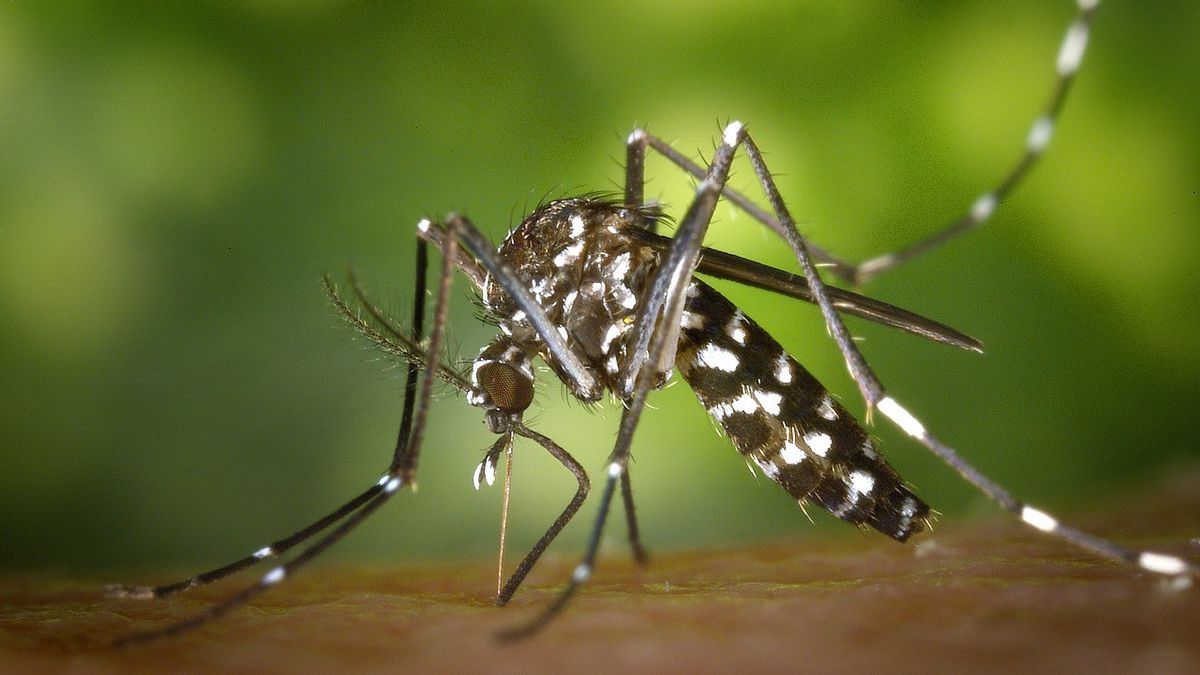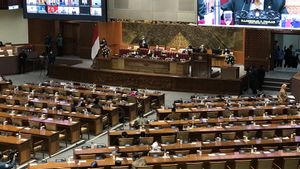JAKARTA - The Ministry of Health (Kemenkes) said the peak interval for the increase in Dengue Hemorrhagic Fever (DHF) cases, which was initially every 10 years shorter, became 5 years or even 3 years, due to increasingly uncertain weather changes.
Director of Prevention and Control of Infectious Diseases at the Ministry of Health, Imran Pambudi, said that the first DHF was discovered in 1968 in Indonesia and in the past the increase in cases was once every 10 years, along with the occurrence of El Nino.
"Even if there is no (interval) in Jakarta, every year there must be cases of dengue fever. So this is what I think needs to be watched out for," said Imran in the 2024 ASEAN Dengue Day which was broadcast in Jakarta, Thursday.
According to data from the Meteorology, Climatology and Geophysics Agency (BMKG), he said, the peak of the dry season is July and August. Therefore, it is necessary to be vigilant because the Aedes aegypti mosquito that spreads the disease bit 2.5 times more often as the temperature increased.
"Moreover, what we are worried about is that the rain will be like now in Batam. The rain will be quite heavy in the morning, then 3 days or a week there will be no more rain. So these puddles will become brake places," he said.
According to him, climate change cannot be prevented, but the most important thing is how to deal with it.
Every time there is a peak of the case, he said, there is intervention so that cases go down. Then, he said, cases rose again, which indicates that the old intervention method was no longer optimal. Therefore, he considered the need for innovative efforts to overcome dengue.
In addition to making efforts to eradicate mosquitoes, according to him, local governments (Pemda) also need to evaluate starting from the accuracy of their activities, frequency, targets, even as clean as they are from mosquito larvae to ensure the effectiveness of these efforts.
SEE ALSO:
Imran said mosquitoes are the most violent animals, because they become the number one killer animals in the world. This, he continued, is not like people think that animals such as snakes or tigers kill humans the most.
"It turns out that every year it kills about 1 million people in the world," he said.
In Indonesia, he said, the death toll from dengue fever so far or the 25th week of 2024 is 869 cases, while the total death toll in 2023 is 894 cases.
As for the dengue cases, said Imran, so far there are 146 thousand cases in 2024 and in 2023 there are around 114 thousand cases. Meanwhile, the largest distribution of dengue cases in 2023 and 2024 in densely populated areas, such as West Java, East Java, Jakarta, and Bali.
The English, Chinese, Japanese, Arabic, and French versions are automatically generated by the AI. So there may still be inaccuracies in translating, please always see Indonesian as our main language. (system supported by DigitalSiber.id)


















